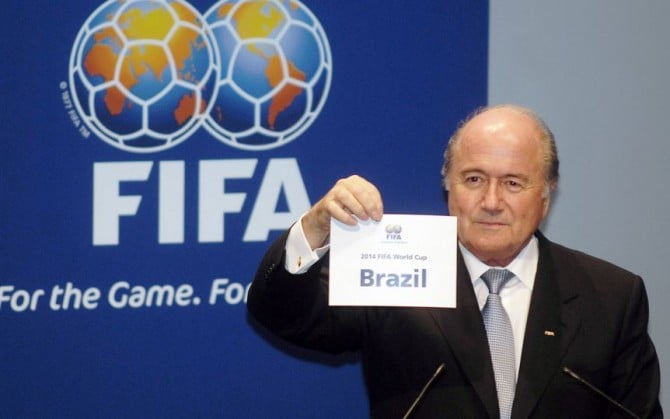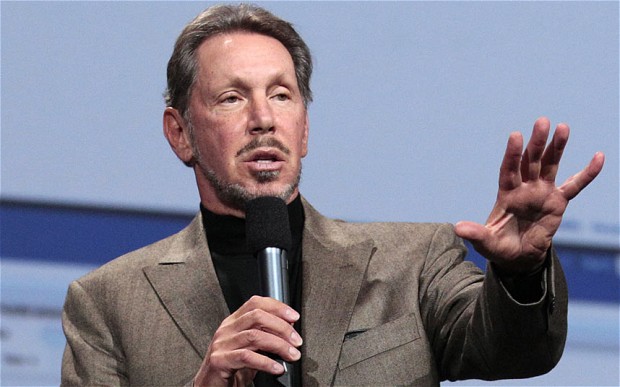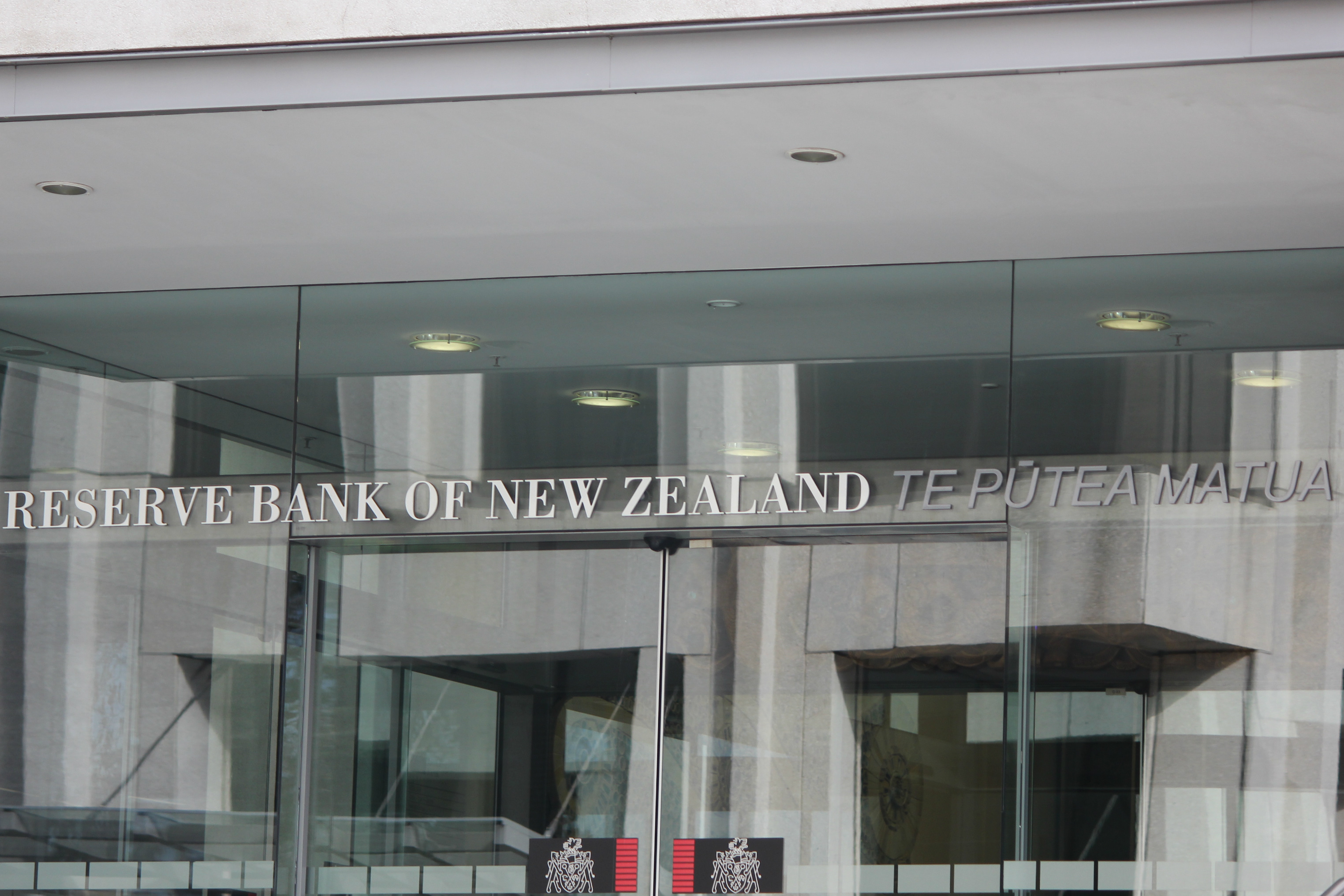The commencement of the Brazil 2014 FIFA World Cup has not erased lingering questions on how much the hosts have spent on the tournament.
The billions of dollars spent on World Cup infrastructure in a country of prevalent poverty is one of the reasons why Brazilians have taken to the streets recently.
Once pegged at less than $1 billion — and much of it supposedly from private funders— the price of stadium construction and upgrades has now eclipsed $3.5 billion, and when the various infrastructure schemes are added to the tally, the final number may surpass $14.5 billion.
Brazil’s estimated costs for renovating soccer stadiums or building new ones that will meet World Cup standards have tripled since the country was awarded the World Cup back in 2008. Most of that is believed to be due to corruption and economic inefficiencies (such as high taxes) that make construction work more expensive.
Advertisement
Brazil could end up paying greater than what South Africa and Germany invested when they hosted the World Cups in 2006 and 2010, respectively.
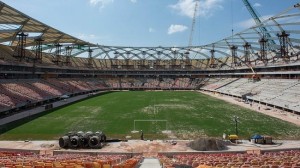
The cost of the Estádio Nacional Mané Garrincha in Brasília has almost tripled to $724m, which government auditors attribute to fraudulent billing. The spike in costs has made that stadium the world’s second most expensive soccer arena (after Wembley), even though the city has no major professional football team.
Brazil invested another $201.7m to build a football stadium at Fortaleza, a city where the gap between rich and poor makes it economically the fifth most unequal city on the planet (according to the United Nations) and part of a region where a fifth of the adults are illiterate and half live on less than $1 a day.
Advertisement
There are several signs that many of these stadiums will be of little use after the World Cup. This is partly because some of these stadiums are located in towns where there are no first-division soccer teams, or where there is little demand for massive events. For example, Manaus and Cuiaba — two cities in sparsely-populated areas of Brazil that have no first division teams — will each get brand new $200 million stadiums.
There are also other expenditures, such as security, for which the government has budgeted $900 million dollars; and infrastructure improvement projects, such as hotels, airports, roads, and transport networks, in which the government expects to spend an additional $12 billion.
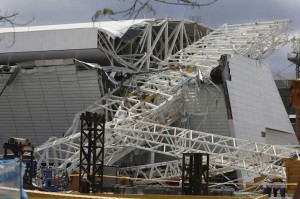
A 28-gate, $723m terminal at Viracopos International Airport, within sight of the new Arena Corinthians stadium in São Paulo, is another mouthwatering venture added to renovations at the Rio and Salvador airports.
And yet, some of the tournament’s 12 stadiums remain unfinished, and airport upgrades are well behind schedule. Other infrastructure projects have been either significantly altered or cancelled altogether.
Advertisement
FIFA had to shift stadium deadlines from December 2013 to May 2014, yet hours to the kick-off, work is still ongoing.
Brazil was awarded the 2016 Olympics two years after clinching the World Cup’s hosting rights.
To that end, it’s important to view Brazil’s spending in the context of both the World Cup and Olympic Games, as the cost of the World Cup may reduce the spending on infrastructure for the Olympics.
So what does Brazil gain from hosting the World Cup?
Advertisement
Aldo Rebelo, the country’s minister of sport, says the World Cup will provide a “lasting legacy of economic growth,” as he expects the tournament to boost Brazil’s economy by around $90 billion.
Then there are the 3.6 million jobs — both short-term and long-term — the competition is expected to generate, the same number the 2016 Olympics will likely require.
Advertisement
The Brazilian Institute of Tourism estimated that around 600,000 tourists will visit the country next July and they will spend approximately $2.6 billion, while the 3 million Brazilians estimated to attend will spend about $7.9 billion.
The Brazilian government also commissioned several studies on the economic impact of the World Cup, which estimated that the tournament will add anywhere from $70 to $110 billion to Brazil’s economy, 20 times what South Africa’s estimated earnings for the previous World Cup in 2010.
Advertisement
The studies explain that some of this income will come from a boost in tourism and from the positive impact of infrastructure projects that are triggered by the World Cup. But these studies have come under scrutiny by some economists who say that the findings are politically motivated.
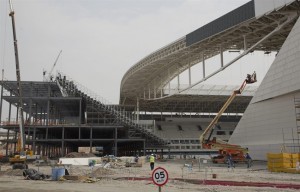
Dennis Coates, an Economics professor at the University of Maryland, points out that tourism does not increase dramatically with big events like the World Cup.
Advertisement
“There is no evidence that the benefits promised by event organizers have ever materialized,” he said in a study.
That’s because while host countries are visited by thousands of soccer fans, they also lose regular tourists who want to avoid the crowds and high prices for accommodations that are generated by this kind of event.
Finally, World Cup earnings are also hard to quantify. South Africa knows that.
Two years after hosting the 2010 World Cup, the South African government issued a report saying it still could not put a number on the tournament’s economic impact on the country. The report did say that South Africa would earn $6 billion from the Cup, but that was a mid-to-long term projection based on a series of unpredictable variables.
According to the report, only 309,554 people arrived to see the event out of the estimated 450,000 visitors, generating $513 million. By the end of 2010, South Africa had recouped only 11 per cent of $4.5 billion invested in building and renovating stadiums and infrastructure.
But Brazilians are sure to benefit from infrastructural upgrade in urban metro lines, good roads, hotel patronage and — yes — the sex workers!
Add a comment
